Let The Tulips Bloom
Spring 2024
University of Virginia
This work was done as part of the Spring 2024 Methods of Community Research and Engagement course.
From the Executive Summary:
Following the withdrawal of US troops from Afghanistan in 2021, thousands of Afghans evacuated from their country and have been seeking asylum internationally. For those coming to cities in the United States, many asylum applicants are placed for resettlement through the International Rescue Committee (IRC), a non-profit organization that works to assist international refugees and asylum seekers by helping them find housing and employment in their cities of placement. In recent years Charlottesville has accepted hundreds of Afghan refugees, in part due to the presence of existing Afghan communities in the area, and in part due to the presence of the IRC, which has had an office in Charlottesville since 1998.
However, for refugees, arriving in a foreign country presents many additional challenges beyond navigating the fundamental needs of housing and employment. Cville Tulips is an organization in Charlottesville devoted to helping refugees acclimate through providing important services, and building a sense of community for Afghan refugee women and children through various hosted activities and events. Their mission statement is “to facilitate relationships between new residents from Afghanistan, longtime Afghan residents and the broader Charlottesville community” (Cville Tulips). Services they provide to the refugees include community programming (hosting social gatherings, arts and crafts events, English lessons for refugee women, and various youth activities), as well as assisting with transportation needs.
Based on information shared with us by the Cville Tulips, we were inspired to investigate factors contributing to the agency—or lack thereof— of Afghan refugee women and children in Charlottesville. By agency, we are referring to the refugee’s abilities to make their own decisions on how and where to spend their time and resources. The Tulips informed us that barriers in access to transportation and healthcare present major challenges towards the agency of the Afghan refugee women and children they work with.
Our guiding research question is:
“What actions would maximize Cville Tulips participant’s agency in terms of access to healthcare and overall mobility in Charlottesville?”
To answer this question, we will survey preexisting barriers in access to transportation and healthcare that inhibit the welfare and agency of Cville Tulips participants, who are Afghan refugee women and children in Charlottesville. Through a variety of quantitative and qualitative methods, we hope to illuminate how both of these aspects currently impact their agency and what steps can be taken in healthcare and transportation to help them attain a greater sense of agency.
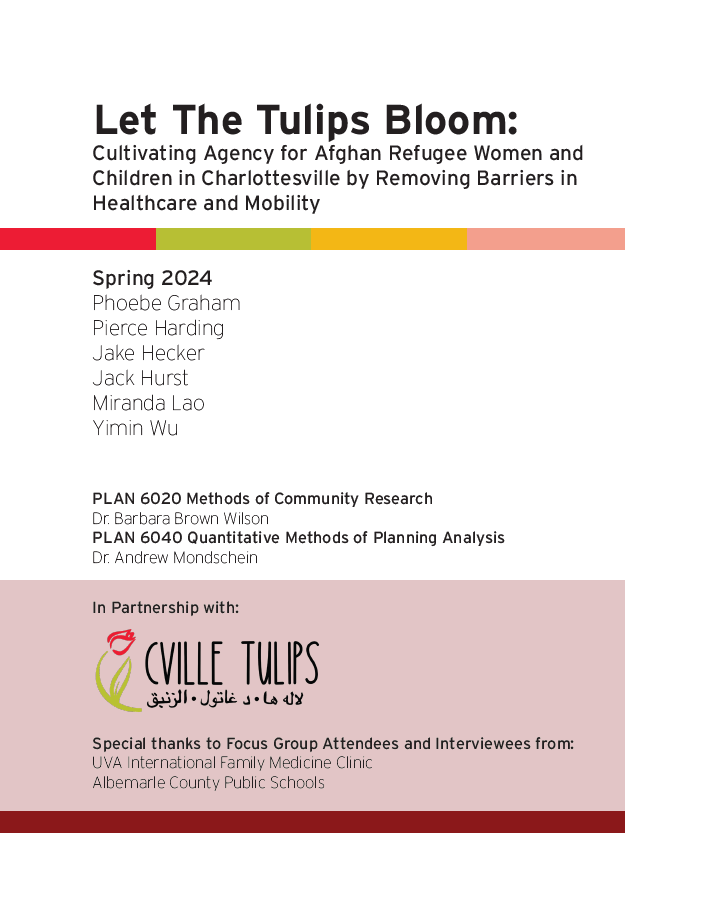
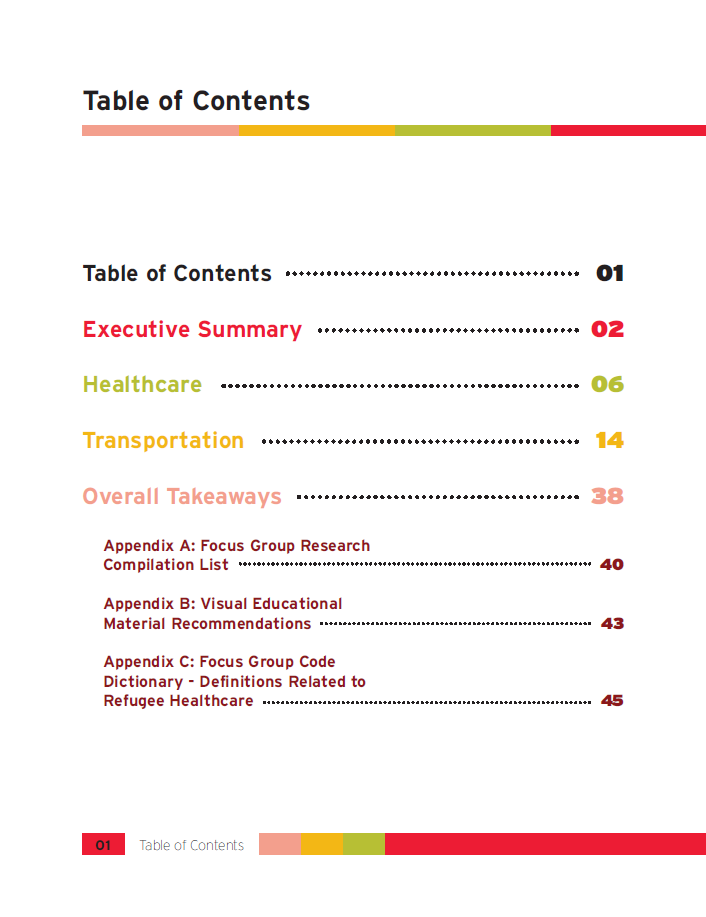
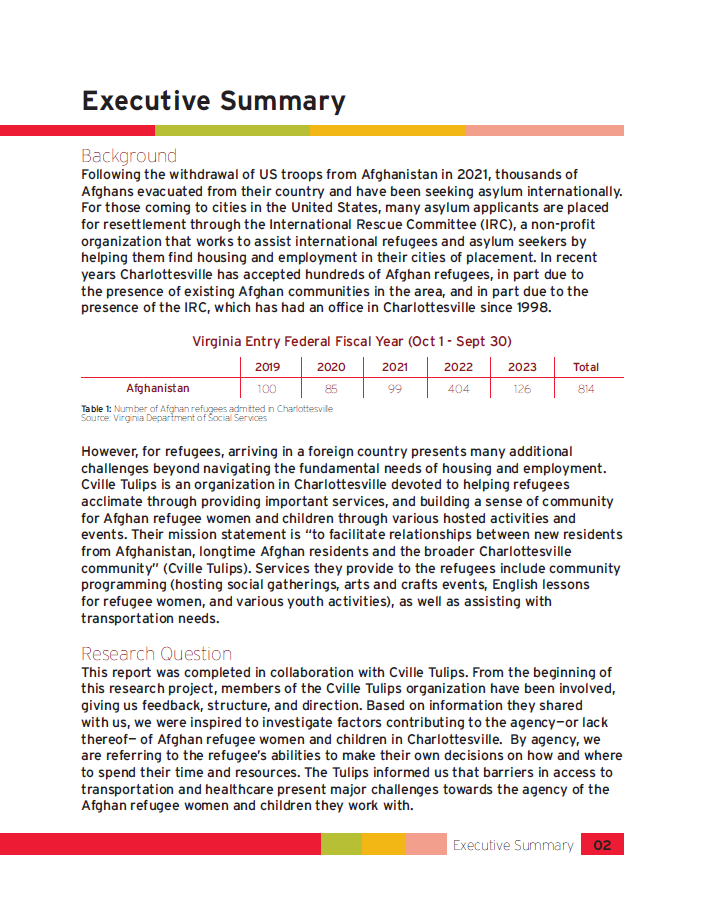
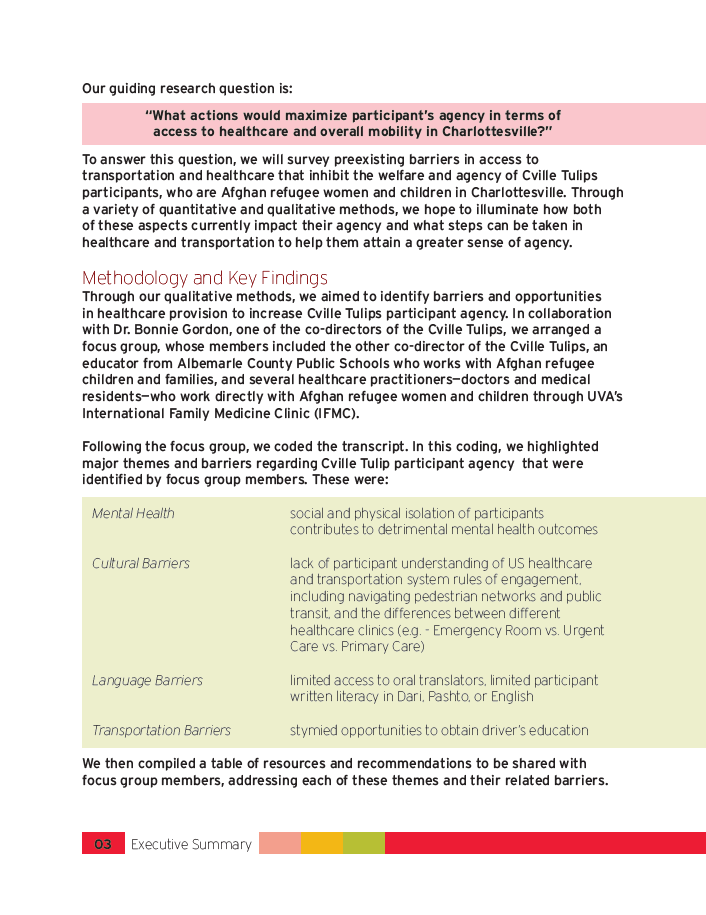
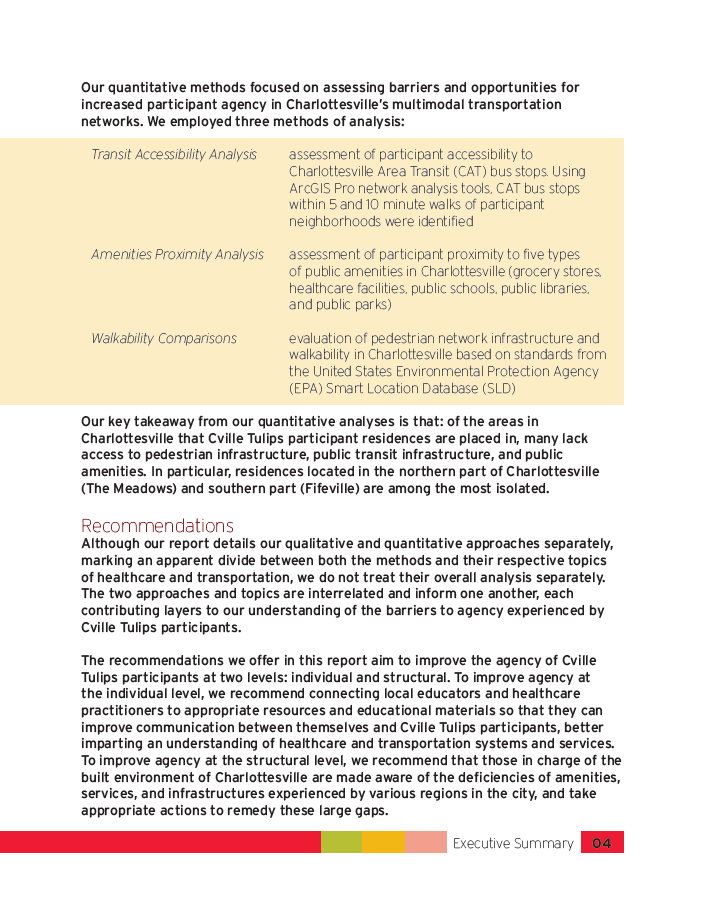
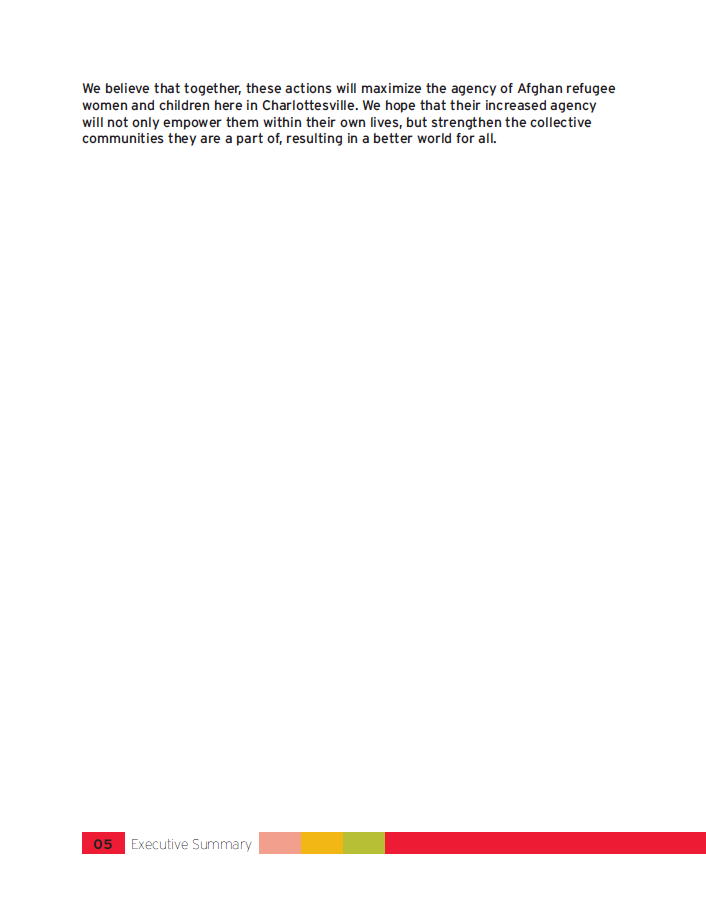
The full report can be found here. It can also be found on the UVA Libra repository here.